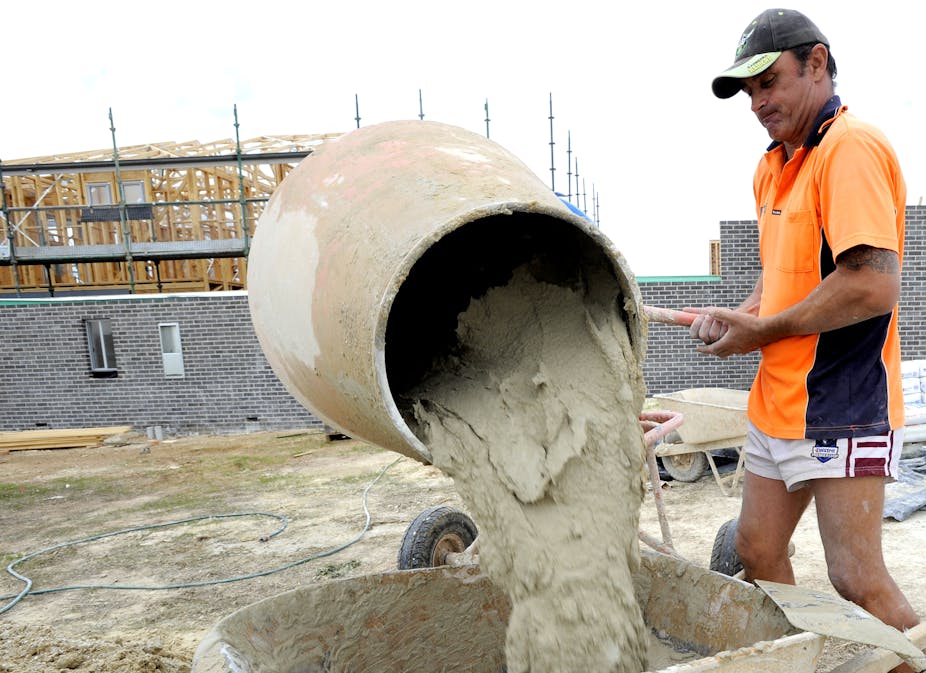The Federal government’s Tax Forum offers a unique opportunity to begin remedying some of the inefficiencies and inequities we are witnessing in our housing system.
Housing in Australia has become an unaffordable dream for some, and a nightmare reality for others already in the market.
House prices have risen faster than incomes over the past 40 years, with median prices outstripping the borrowing capacity of average workers by more than $250,0000.
We are increasingly a nation of landlords and renters rather than a nation of homeowners. With 22% of Australians owning 55% of the homes across our capital cities, the landed gentry are on the rise.
The “fair go” of the Australian housing market — once a defining feature of our culture — bears little resemblance to the reality facing today’s potential homeowners.
According to a 2010 report from the National Housing Supply Council, around 50% of low-to-moderate income households who have managed to enter home ownership are struggling to cope with significant financial housing stress.
Though house prices have recently softened by 2% to 3%, the Australian Bureau of Statistics 2010 House Price Index makes clear that this is on the back of a decade in which prices rose by 170%.
As a nation, we can only be comfortable with these figures if we have lost sight of the core purpose of home ownership — providing homes.
Property has become a speculators picnic, with homes treated more like share portfolios than as a basic human need.
This is how Australia has ended up with some of the worst housing affordability in the developed world and a dramatically falling home ownership rate.
Government-issued cash subsidies for first homeowners, while seemingly helpful, in fact do nothing but help push up house prices for existing homeowners. It’s a program that is good for some homeowners, but not for home ownership.
The failings in the home ownership sector in turn create fierce competition for properties to rent. Lower income households are unable to compete in the rent auctions.
In 2007-08, of the 1.4 million private rental dwellings affordable to lower income households, 1.1 million of these were occupied by higher income households.
As a result, lower income households end up in insecure, inadequate housing; share with others; join long waiting lists for social housing; or, join the more than 100,000 homeless in Australia.
There are many interlinked causes of these economically inefficient and socially inequitable housing circumstances.
Some arise from inefficiencies in the regulation of land and new housing supply.
Other reasons include rising levels of real household incomes, a period of low interest rates and government subsidies that fuel housing demand but do nothing to assist supply, as well as an under-investment in public housing supply.
A series of tax settings – such as limiting negative gearing and replacing state-levied stamp duties with a broad-based land tax – were identified by the recent Henry Tax Review, but are considered politically difficult.
Yet new research by the Australian Housing and Urban Research Institute’s Professor Gavin Wood provides early evidence that the Henry Review’s recommendations would have a positive impact.
Limiting negative gearing provisions for residential landlords would likely see an increase in the supply of private rental accommodation from “equity investors”, such as superannuation funds.
Henry’s proposal to replace stamp duty with a broad-based land tax levied on an individual rather than aggregate basis could also see prices drop by up to 10%.
The advice to the Victorian Government in Treasury’s so-called “blue book” echoes the call for replacing stamp duties with a broad-based land tax, highlighting possible state-level changes.
Reforming the tax regime as it applies to housing has the potential to improve the lives of many Australians. If we get the settings right we can do some good.
If we get them wrong, things will get worse. If we do nothing, things will continue to get worse, and the current generations of wealthy property owners will be responsible for leaving behind a housing system far worse than the one they inherited.

